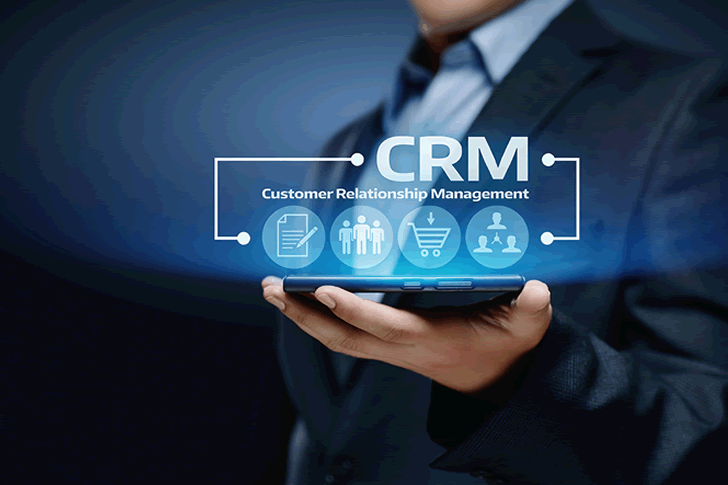Customer Relationship Management (CRM) software can significantly optimize small business operations by enhancing customer interactions, improving sales, and ensuring loyalty.

In today's competitive landscape, small businesses must prioritize customer relationship management (CRM) to thrive. CRM software is a valuable tool that helps manage interactions with current and potential customers, streamline processes, and increase profitability. But how can small businesses leverage CRM software very effectively? Here's a comprehensive guide to help.
Choosing the right CRM software tailored to the unique needs of a small business is the first crucial step. Here are some factors to consider:
User-Friendly InterfaceOpt for a CRM that is intuitive and easy to use.Ensure that your team can quickly adapt to the software with minimal training.
ScalabilitySelect a CRM that can grow alongside your business needs.Look for solutions that offer flexible pricing plans.
CustomizationChoose software that allows custom fields, workflows, and processes.Ensure it aligns with your specific business operations.
Integration CapabilitiesEnsure the CRM can integrate seamlessly with other tools you are using, such as email marketing platforms, accounting software, and customer support systems.
Mobile AccessibilityPick a CRM with robust mobile features to keep your team connected on the go.Mobile access ensures that valuable customer information is always at hand.
Successfully implementing CRM software involves thoughtful planning and execution:
Define Clear ObjectivesIdentify what you aim to achieve using CRM software. Is it better customer service, efficient sales tracking, or enhanced marketing campaigns?Establish measurable goals for your CRM strategy.
Training and OnboardingProvide adequate training to your employees to maximize the software's potential.Consider appointing a CRM champion to assist others and address queries.
Data MigrationCarefully transition your existing customer data to the new system.Clean and organize data to ensure accuracy and efficiency.
Customize the CRMSet up the CRM to fit your business processes.Utilize custom fields, tags, and workflows to align the software with your specific requirements.
Effective customer engagement is a major benefit of CRM software. Here’s how to make the very of it:
SegmentationGroup customers based on behaviors, preferences, and purchase history.Craft personalized marketing campaigns to target specific segments.
Automated CommunicationUse the CRM to schedule follow-ups and automate communication. Send out timely email campaigns and automated responses to customer inquiries.
Customer ServiceEquip your support team with CRM tools to manage queries and concerns efficiently.Maintain detailed customer records to allow personalized interactions.
Feedback ManagementUse CRM software to track customer feedback and sentiment.Address issues promptly and nurture positive reviews to build a trustworthy brand.
A solid CRM system revolutionizes sales processes in several ways:
Lead ManagementTrack and manage leads from generation through conversion.Score leads to prioritize follow-ups and optimize sales efforts.
Sales PipelineVisualize each step of the sales process.Identify bottlenecks and opportunities to close deals faster.
Performance TrackingMonitor sales metrics and team performance.Generate real-time reports to inform data-driven decisions.
CRM software provides profound insights that can refine your marketing strategies:
Behavioral AnalyticsAnalyze customer behavior to personalize marketing campaigns.Leverage data to predict future trends and preferences.
Targeted CampaignsSegment and target audiences more accurately.Measure the effectiveness of campaigns directly through the CRM.
ROI TrackingTrack the return on investment (ROI) of your marketing efforts.Adjust strategies based on performance data to maximize impact.
Ongoing maintenance and evaluation are essential to ensure your CRM remains effective:
Regular UpdatesKeep your CRM software up to date with the latest features and security patches.Regular updates enhance performance and protect against vulnerabilities.
Continuous TrainingOffer continued training sessions to keep your team proficient.Encourage sharing of top practices and innovative use cases.
Periodic ReviewsRegularly review your CRM strategy and performance.Adapt to changing business needs and integrate new tools if necessary.
Customer Relationship Management (CRM) software offers immense value for small businesses by streamlining operations and enhancing customer interactions. By choosing the right CRM, implementing it effectively, and maximizing its features, small businesses can drive growth, improve customer loyalty, and increase overall efficiency. With ongoing maintenance and continuous improvement, CRM software can be a cornerstone of your business success.
Explore the Tranquil Bliss of Idyllic Rural Retreats

Ultimate Countdown: The 20 Very Legendary Gaming Consoles Ever!

Understanding Halpin and its Influence

Affordable Full Mouth Dental Implants Near You

Discovering Springdale Estates

Illinois Dentatrust: Comprehensive Overview

Embark on Effortless Adventures: Unveiling the Top in Adventures Made Easy Outdoor Equipment

Unveiling Ossur Valves: Innovation in Prosthetics

Unlock the Full Potential of Your RAM 1500: Master the Art of Efficient Towing!
